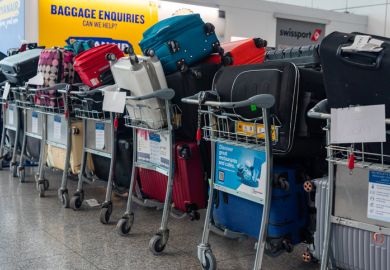Hong Kong, Malaysia, Singapore and the United Arab Emirates are the best places for British universities to set up overseas campuses or establish partnerships with local higher education providers, a study has found.
The countries have been identified as “hotspots” for transnational education activity by the British Council-commissioned report, which analyses student demand and international mobility in 25 nations, as well as how open their governments are to foreign higher education providers.
Each of the four countries is above average in almost all of the categories recorded, indicating a strong potential for foreign universities to flourish there, according to the report, titled The Shape of Things to Come 2: the evolution of trans-national education.
The study, published on 28 February, is due to be discussed at the British Council’s Going Global conference, one of the world’s largest gatherings of higher education leaders. The event will take place in Dubai from 4 to 6 March and Times Higher Education is one of its media partners.
The Shape of Things to Come 2 follows repeated calls by David Willetts, the universities and science minister, encouraging British universities to expand the number of courses they teach overseas.
There are around 571,000 people studying abroad for UK higher education qualifications compared with about 488,000 foreign students in the UK, according to the latest Higher Education Statistics Agency figures.
Of the 200 international branch campuses in operation globally, 25 are British, according to a report last year by the Observatory on Borderless Higher Education, but Mr Willetts wants to see more.
Friendly environments
Besides the quartet previously identified, the British Council report states that there are also favourable conditions in Qatar and South Korea.
It adds that Bahrain, Botswana, China, India, Mauritius, Oman, Spain, Thailand and Vietnam have strengths and weaknesses in different areas (for example, strong student demand being compromised by uncooperative governments in some cases).
The readiness of Indian students to study abroad means that the country rates highly in terms of international mobility but the report says its regulatory framework is hostile to overseas providers.
Brazil’s booming economy has made it a target for some universities keen to recruit students, but the report judges that its market conditions, education policies and student mobility levels make it an unwise place to invest.
Kevin Van-Cauter, higher education adviser at the British Council, said that universities needed to consider whether a campus, a partnership with a local provider or distance learning was the best way to access foreign markets.
“To succeed, universities cannot take a one-size-fits-all approach but must adapt their strategies according to local conditions,” he said.
“This study provides vital information for countries that wish to establish themselves as transnational host countries and for universities that plan to develop [such] provision.”
Register to continue
Why register?
- Registration is free and only takes a moment
- Once registered, you can read 3 articles a month
- Sign up for our newsletter
Subscribe
Or subscribe for unlimited access to:
- Unlimited access to news, views, insights & reviews
- Digital editions
- Digital access to THE’s university and college rankings analysis
Already registered or a current subscriber?




